Para leer este artículo en español, por favor vaya aquí. To read this article in Spanish, please go here.
This is act two, scenes ix-xv, of a two-act narrative essay. Read act one, scenes i-viii here.
Photographs by Alex Boeschenstein.
ix. THE CONTEMPORARY CRUSADES
The 1990s were a wild decade in the United States: Ruby Ridge and Waco, the Exxon Valdez spill, the Oklahoma City bombing, NAFTA, America Online, Heaven’s Gate, the LA riots, Columbine. And as the year 2000 approached, Judgment Day panic percolated. Threats of cataclysmic computer network failure petrified technologically developed countries. At the same time, bleeding edge millenarian Christian groups prepared for an earth-shaking Biblical event. But there would be no spectacular closure to the twentieth century or the millennium. Y2K passed without climax, and I believe that Americans felt weirdly disappointed, even lost.
Enter Texas’s most prolific failson: George W Bush, the born-again fraternity brother-in-Christ, a frequent invoker of the Alamo, a war criminal, and a textbook paper cowboy if there ever was one. Bush and his den of thieves understood that the September 11th attacks offered an apocalyptic consolation prize to listless Americans, as well as an altar upon which Bush might elevate himself to messianic status. Bush’s subsequent imperial invasions for oil were easily marketed as holy wars. His White House offered no pretenses about communism or fascism. This was Jesus Christ versus Mohammed.
Soon enough though, Americans had to grapple with repeated disconfirmations of beliefs justifying our genocidal response to September 11th. For example, the hijackers were almost all Saudi Arabian; none hailed from Iraq or Afghanistan. Further, the post-blitzkrieg inspections revealed that Iraq had zero weapons of mass destruction. Despite these incongruities, the majority of Americans, including most elected Democrats, doubled down on the violent military occupations.
x. YEARNING FOR ZION
A couple hours east of Waco, at Powledge Unit prison outside of Palestine, Texas, a different messiah, Warren Jeffs, prophet of the polygamist Mormon offshoot the Fundamentalist Church of Jesus Christ of Latter-day Saints, is serving a life sentence for raping two girls, one aged twelve, the other fifteen. Back in 2003, after media attention prompted federal authorities to monitor Short Creek, the FLDS twin towns of Colorado City, Arizona, and Hildale, Utah, the crafty Jeffs set his eyes on a plot of land outside of Eldorado, Texas. At the time, Texas’s age of consent was fourteen, and local building codes were functionally nonexistent.
Jeffs quickly broke ground on Yearning for Zion Ranch, a secretive compound that included an enormous temple, a quarry, gardens, a grain silo, a waste treatment facility, and a 29,000-square-foot mansion for the prophet and his multiple wives. Perhaps Jeffs romanticized the sacrosanct sovereignty of private property central to Texas mythology — an irony, considering the fate of Koresh and the Branch Davidians just ten years earlier.
In 2006, following a previous charge for accomplice rape of an adolescent minor, Jeffs went on the lam, before being captured in Las Vegas. Two years later, Texas authorities raided Yearning for Zion Ranch, removing more than 400 FLDS children. The action recalled a 1953 Short Creek raid, wherein police and the Arizona National Guard seized more than 250 children. These types of raids confirm FLDS prophets’ repeated claims that outsiders seek to destroy them, thereby reinforcing in-group persecution complexes. And so, in 2012, when Jeffs prophesied from prison that the world would end before 2013, his followers were undeterred by disconfirmation of his End Times prediction. He had been right, after all, about the government coming to take their children.
Mormonism, born of the burned-over district and — with its own brand of prosperity theology — perhaps the most American religion, is, by and large, too weird for most Christians. To evangelicals, Joseph Smith was no martyr. He was an impious swindler — and a pervert. Once again, the plural marriage thing, although no longer practiced by the vast majority of Latter-day Saints, drives Protestants bonkers.
xi. GODLESS COMMIE SCUM
The terms hero and messiah, at least in Texas, are sometimes distinctions lacking difference. The Alamo’s Holy Trinity — Travis, Bowie, and Crockett — weren’t by any metric saints, or even particularly brave, yet they’ve been historicized twice-over as American heroes and Christlike martyrs. Texas “traditionalists” equate Alamo defenders with the Spartans at Thermopylae — like the movie 300. But in reality, Travis, Bowie, and Crockett had more in common with real-life mercenaries the Glanton Gang from Blood Meridian.
Establishing heroes and messiahs helps to resolve cognitive dissonances between Texas’s performative piety and the state’s concrete historical bloodguilt. To this end, innumerable Anglos have evangelized and appropriated the Alamo creation myth, including a mid-twentieth-century trinity who combined the powers of celebrity, political office, and public distribution.
Walt Disney, furious at unionized animators and paranoid about communism in the 1950s, resurrected the dusty Davy Crockett story, producing three live-action, historically egregious television films that injected white supremacist, pro-capitalist propaganda into millions of postwar U.S. households.
After starring in The Searchers, John Wayne directed The Alamo (1960), casting himself as Crockett. Wayne considered the film’s slapstick patriotism a middle finger to communism and presidential candidate John F Kennedy. Critics and historians panned The Alamo. Reactionary conservatives, however, rabidly defended the film, which celebrated their fantasy of Anglo-American history. Wayne’s The Alamo ignited a culture war that has raged ever since.
And Texas-born Lyndon Baines Johnson, aiming to rationalize an irrational escalation of conflict with the communist government of North Vietnam, invoked the Alamo often. Technically, this made sense; both involved Americans occupying sovereign foreign nations.
xii. SPECIFIC EVENTS
In 1971, with Nixon and Kissinger now in charge of Vietnam and, as Hunter S Thompson put it, the wave of the radical 1960s having finally broken and rolled back, artist Donald Judd left New York City and began building his own compound in Marfa, Texas. Six years prior, Judd had published his vanguard treatise Specific Objects (1965), which argued against the illusory poetics of painting and sculpture in favor of an almost context-less literalism around three-dimensional art and objecthood.
Judd-heads might bristle at the parallels I’m about to draw, but humor me.
Throughout Specific Objects, Judd demands an art liberated from historical traditions. And while such hyperbole might seem antithetical to the world views of bygone-era-worshiping “traditionalists,” I’d argue that mainstream Anglo-Texans are, in fact, anti-history and anti-context. Alamo acolytes, specifically, strive to protect their identitarian mythos from disconfirming and inconvenient historical realities. They want Specific Events.
Judd’s persuasive tactics in Specific Objects — soothsaying via repetitious negation, for example — often rhyme with the rhetorical strategies of messianic men. Judd outlines a future by virtue of rejecting historical precedent, suggesting that both sub- and overcultural aesthetic value systems are no longer credible. Messiahs use similar methodologies, calling historical doctrines into question as a means to validate their novel, divinely inspired prophecies. Even fundamentalism is an assault — just a rearguard one — on what have become accepted traditions. The only way to truth, the messiah claims, is through their bespoke interpretation.
Robert Tilton and Kenneth Copeland used this tactic on television audiences. David Koresh and Jeffs used it at their respective compounds. Tech charlatan and recent Texas transplant Elon Musk cynically suggests that subway systems would better operate like automobiles. And in a roundabout way, neo-Texan podcaster Joe Rogan, the anti-expertise Jesus Christ of “just asking questions,” does a prism-refraction version of this, convincing his millions of disciples that every interpretation of every topic is worth engaging. Have you “experienced” his interview with Texas information warrior Alex Jones?
xiii. JUDD SIMPLE
In a 1992 interview at his Marfa compound, Judd stated, not inaccurately, “Society is basically not interested in art.” But what he posits next is revealing: “Most people who are artists do that because they like the work… the art has an integrity of its own, and a purpose of its own. And it’s not to serve the society [emphasis mine]. I mean, that’s been tried now in the Soviet Union and lots of places and it doesn’t work.”
Judd’s musing reminds me of the opening monologue to the Coen Brothers’ debut film, the 1984 Texas neo-noir classic Blood Simple:
I don’t care if you’re the Pope of Rome, President of the United States, or even Man of the Year. Something can always go wrong. And go ahead, complain. Tell your problems to your neighbor, ask for help. Watch him fly. Now, in Russia, they got it mapped out so that everyone pulls for everyone else — that’s the theory, anyway. But what I know about is Texas. And down here, you’re on your own.
The creative self, Judd believed, eclipsed art for social good. And through abstracted formalism, by fabricating specific objects, Judd sought communion between the individual and the divine — a very Protestant, and Texan, attitude. No doubt, the paradoxical aura of West Texas — rugged individualism and ambient paranoia; wide open ranges sewn into private tracts by barbed wire — had infected the artist. One of the first things Judd did at his property in Marfa was construct massive brick walls, sealing it off from the prying eyes of the economically depressed town.
Art historian David Raskin argues that in his younger years, Judd observed an anarchist politics fashioned after his mentor, artist Barnett Newman. Like most anarchists, as opposed to socialists or communists, Judd loathed institutions. He wrote about breaking Lower Manhattan into multiple townships to upend top-down bureaucracy (though it’s not insignificant that he owned a building in SoHo). And as a veteran of the Korean War, Judd was a vocal critic of the military industrial complex, particularly in regards to Vietnam. But I’d like to have been able to ask Judd if he thought we lived in a time of abundance or scarcity, because the line between pacifist-anarchist and anti-interventionist-libertarian can be fuzzy — especially when it comes to landowners who fabricate perimeter walls. In a 2001 essay called Specific Opposition: Judd’s Art and Politics, Raskin suggests that as Judd aged, he drifted rightward into libertarianism, even claiming sardonically to have “seceded from Texas.”
Judd once called New York’s Museum of Modern Art a “fascist building in a fascist context,” which offers a more instructive and accessible (and funnier) position than most institutional critique. Yet despite this anti-institutional posturing, Judd, like so many borderline messianic, libertarian-minded men, relied upon institutions. He’d had a retrospective at the Whitney Museum just before moving to Presidio County, Texas. Further, his purchase of the former military base Fort D.A. Russell in Marfa was financed by the Dia Art Foundation. And there in Marfa, in an ironic twist that any literary editor would flag as far too on the nose, Judd established his own institution, the Chinati Foundation. Judd was as insider and institutional an artist as there ever was, no matter what the Judd-heads espouse.
xiv. BLEEDING THE BEAST
Of particular interest to me, when it comes to the various stripes of Texas messiahs, is this oft-professed, Protestant-derived disdain for, and distrust of, institutions, be they governmental, economic, or cultural. I’m well aware that pointing out hypocrisy in contemporary America is a bootless errand, but it remains amusing that super-sovereign mavericks quietly depend upon institutions to subsidize their visions.
Judd needed Dia. Stephen F Austin and the storied Old Three Hundred families of Texas received unfathomable land grants from the Mexican government, and a full one-quarter of their colony’s population were Black people enslaved through special privileges authorized by those same Mexican authorities. Elon Musk depends on massive federal subsidies in the form of electric vehicle credits and billions in grants and contracts from taxpayer-funded NASA — to say nothing of the staggering tax incentives Texas provided him, as both an individual and CEO, upon relocating Tesla from California. The anti-establishment Rogan inked an exclusive $100M+ deal with streaming monopoly and big data farming operation Spotify. Charismatic creeps Tilton and Copeland enjoyed government-sanctioned, tax-free status on their television ministries. And the Fundamentalist Church of Jesus Christ of Latter-day Saints is notorious for defrauding social welfare programs like food stamps, through a practice Warren Jeffs calls “bleeding the beast.”
xv. COME AND FAKE IT
None of this is intended to align Donald Judd culturally, let alone spiritually, with the evangelical right, racist Texas septuagenarians, or a wealth criminal like Elon Musk. What I’ve meant to highlight herein are libertarian philosophical overlaps between what might be considered unlikely parties, all of whom are bound together by a pioneer-pilled, autonomous Protestant mindset that is uniquely American — and specifically Texan.
Did Donald Judd or David Koresh consider parallels between their respective compounds and the Alamo? Perhaps, but this is less important than the fact that the cultural milieu of mainstream Anglo-Texans is always, fundamentally, rooted in Alamo mythology, a propaganda project that has been instrumentalized to justify American imperialism, pedagogical racism, Indigenous genocide, and extractive capitalism.
Today, there is a new campaign for the 98th meridian in Texas as twenty-first-century con-men and enterprising egomaniacs like Musk and Rogan descend upon the territory under the vague banner of “freedom,” insisting that they’re fleeing California’s oppressive nanny state. What they’re actually fleeing is human-caused ecological disasters, an agitated labor class, and a runaway real estate market they’ve absolutely profited from. The American frontier is folding back from the coast. These men are all false prophets, preaching contemporary, secularized twists on classic Protestant values like toxic individualism and prosperity theologies. Daniel Day-Lewis could play any one of them, though Danny McBride would make a more appropriate casting choice.
Texas is becoming today’s burned-over district, as grifters beget more grifters and Texans — driven to desperate ends by mounting economic precarity, climate catastrophes, and a genuinely oppressive state government — scrape together enough gig work to buy some snake oil. These capitalists condemn social welfare systems, yet they require a social fabric — meaning workers — to validate and underwrite them. They assume that each of us fantasizes that some day we might become them, so we won’t question their pornographic personal mythologies of self-reliance, bravery, and ingenuity. Prosperity, they sermonize — whether it’s achieved through cryptocurrency, space tourism, nootropics, privatized power grids, fifth-dimensional ascension, or hustling yourself to death — is just around the corner.
But any rational person can identify contradictions in these prosperity pyramid schemes. Markets, infrastructures, and self-driving vehicles keep crashing. So why then, with such conspicuous disconfirmations, would increasing numbers of white men target Texas as a proving ground for their messianic complexes? It’s not exactly (fake-free-market) rocket science. Ever since the Alamo, hucksters have seen that spinning a good yarn placates cognitive dissonances. And rapturous fables make for scintillating reads during what feels, eerily, like it could be a protracted and permanent Texas sunset.


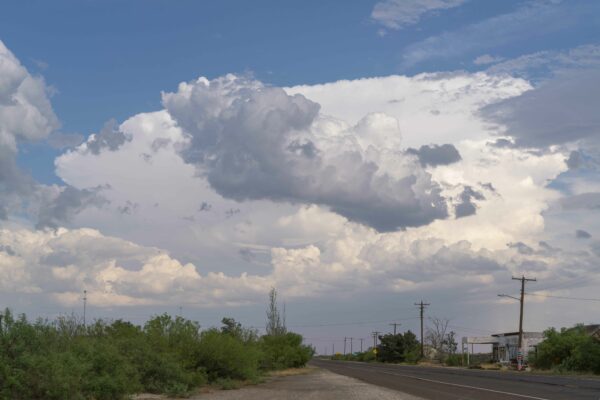
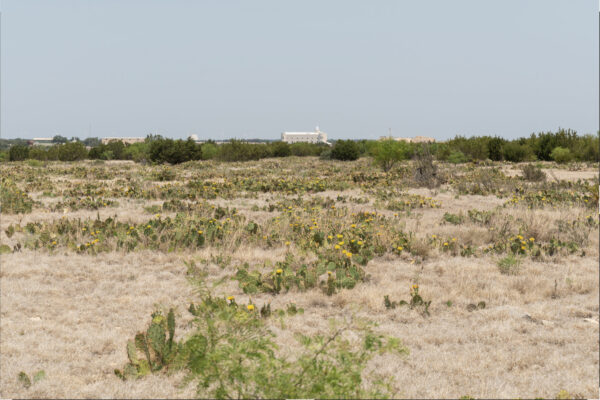
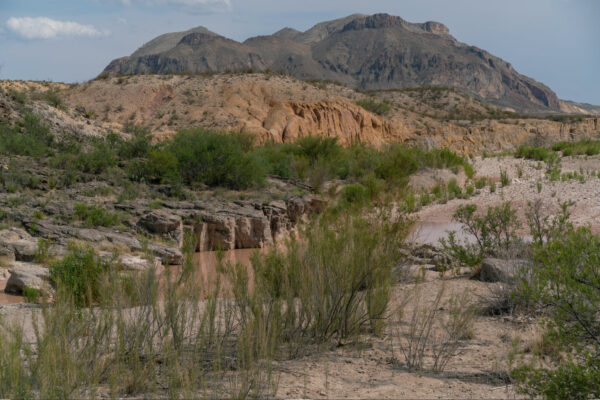
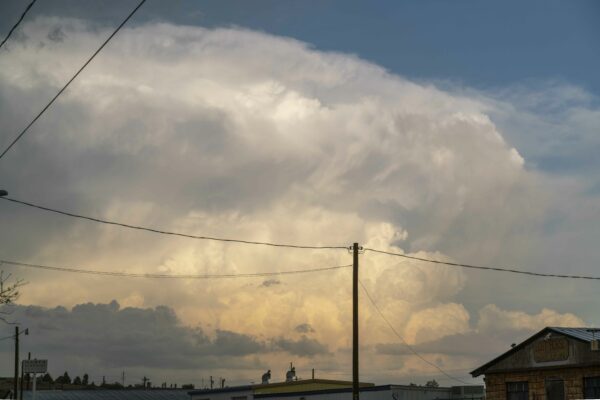
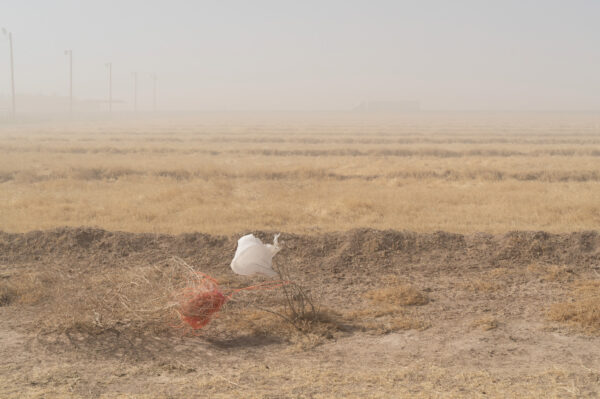
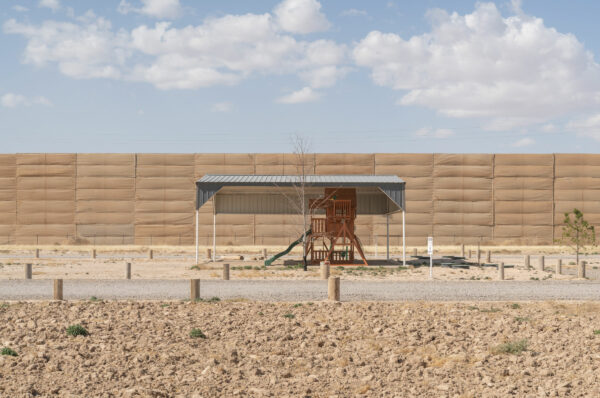
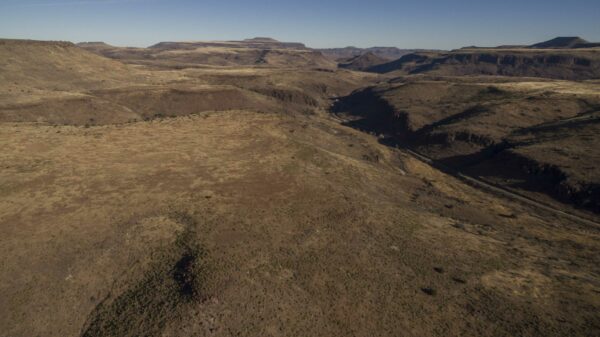
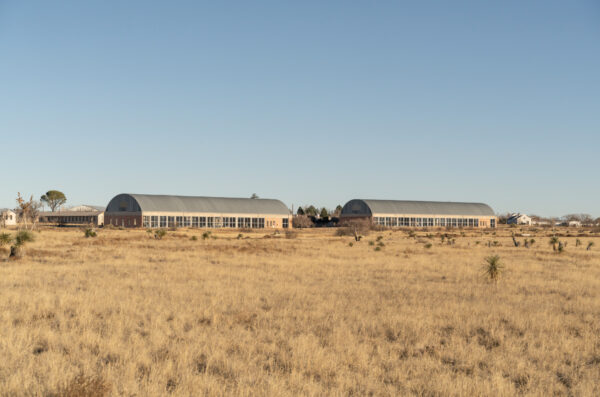
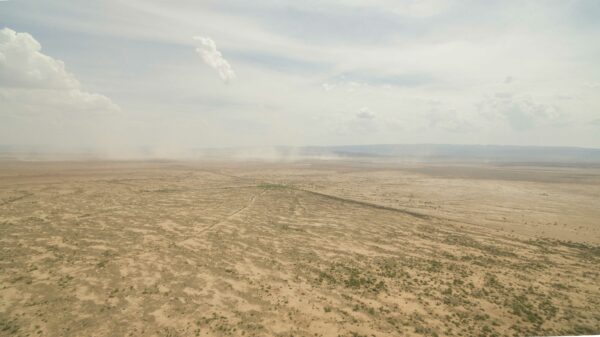
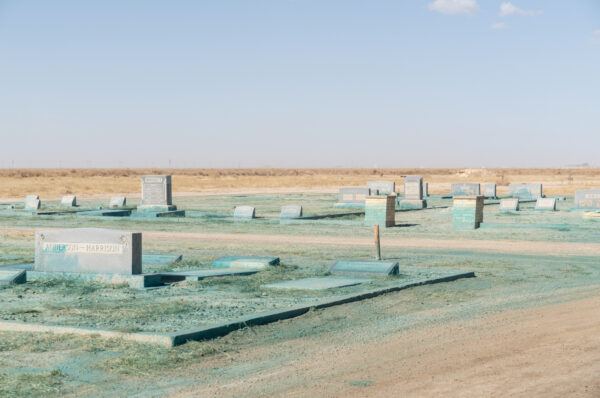
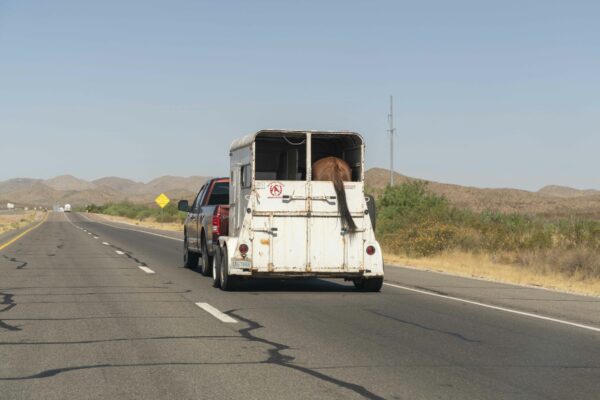

2 comments
Bravo! A must-read!!!
Haha! Great analysis! And love the gentle care taken with messiah devotees.